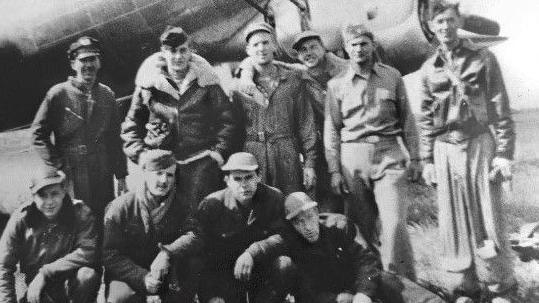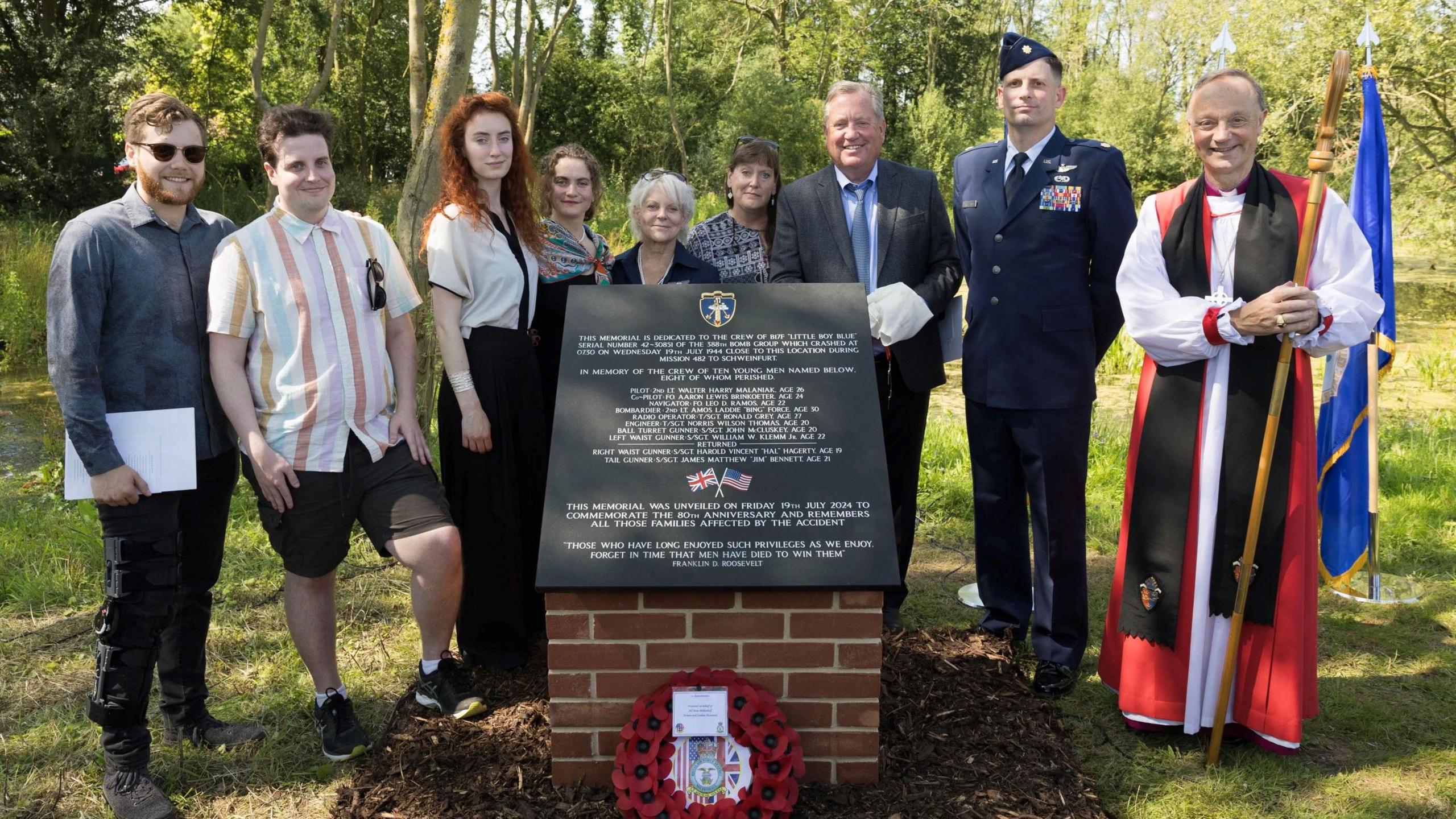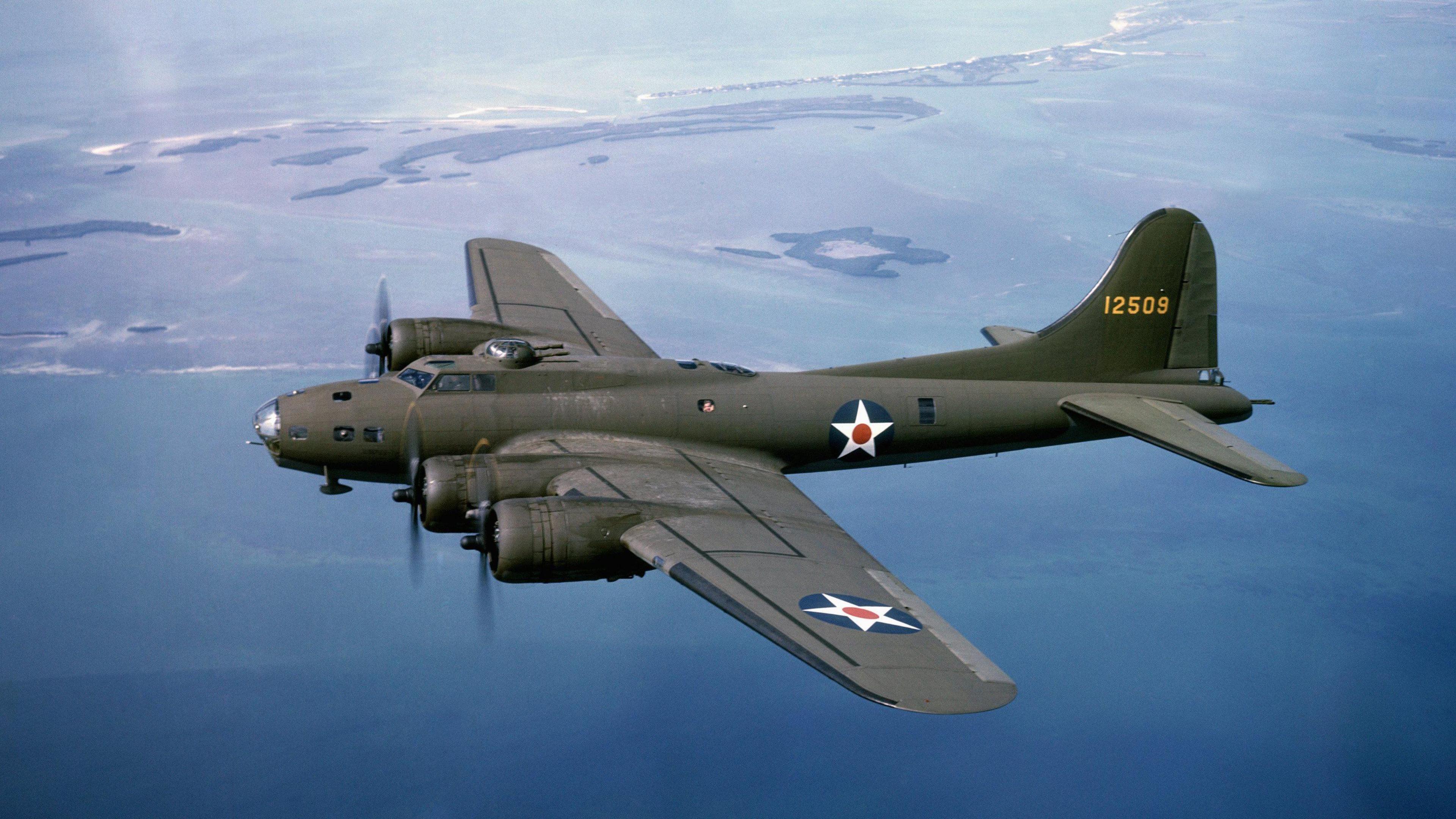Evidence of WW2 crash revealed on 80th anniversary

Plane parts and dog tags belonging to one of the crew were uncovered
- Published
Evidence about a World War Two aircraft crash in which eight men died has been shared at a memorial service marking its 80th anniversary.
On 19 July 1944, an American WW2 bomber named Little Boy Blue crashed just outside Thurston, near Bury St Edmunds, in Suffolk.
An archaeological search of the crash site last year uncovered the dog tags of Aaron Brinkoeter, one of the co-pilots, whose remains were never recovered.
The discovery was described as ‘‘an extraordinary and moving experience for all involved".
Little Boy Blue was on a bombing route to Schweinfurt, Germany, when it was involved in a mid-air collision after suffering engine problems.
Only two men survived the crash.
The remains of 26-year-old pilot Walter Malaniak, from Pennsylvania, and 27-year-old radio operator Ronald Grey, from New York, were also never recovered.
Local metal detectorist Clive Smither found Aaron Brinkoeter's dog tags on what would have been the pilot's birthday.
The discovery was part of excavations led by Cotswold Archaeology to uncover new evidence about the airmen who were aboard the bomber when it crash landed.
The 40 volunteers included UK military veterans, serving US military personnel and the Suffolk Archaeology Field Group.
Rosanna Price, Cotswold Archaeology’s engagement manager, said it had been ‘‘an extraordinary and moving experience for all involved".

A permanent memorial to the WW2 crew was unveiled at the site
The three men were unaccounted for, meaning there had been no formal funerals but the families had wished for a memorial service.
About 30 members of the aircrew's family were able to attend the service on 19 July.
After the service the Bishop of Dunwich, Dr Mike Harrison, said: ‘‘We are indebted to the generous time given by so many people to ensure that, not only does the legacy live on of this tragic incident, but that new evidence has been uncovered that gives some closure for families involved."
The project was commissioned by the US Department of Defense’s DPAA department.
The excavations also helped to identify plane parts and the project brought photographs and oral history.
Get in touch
Do you have a story suggestion for Suffolk?
Follow Suffolk news on BBC Sounds, Facebook, external, Instagram, external and X, external.
Related topics
- Published20 May 2024
